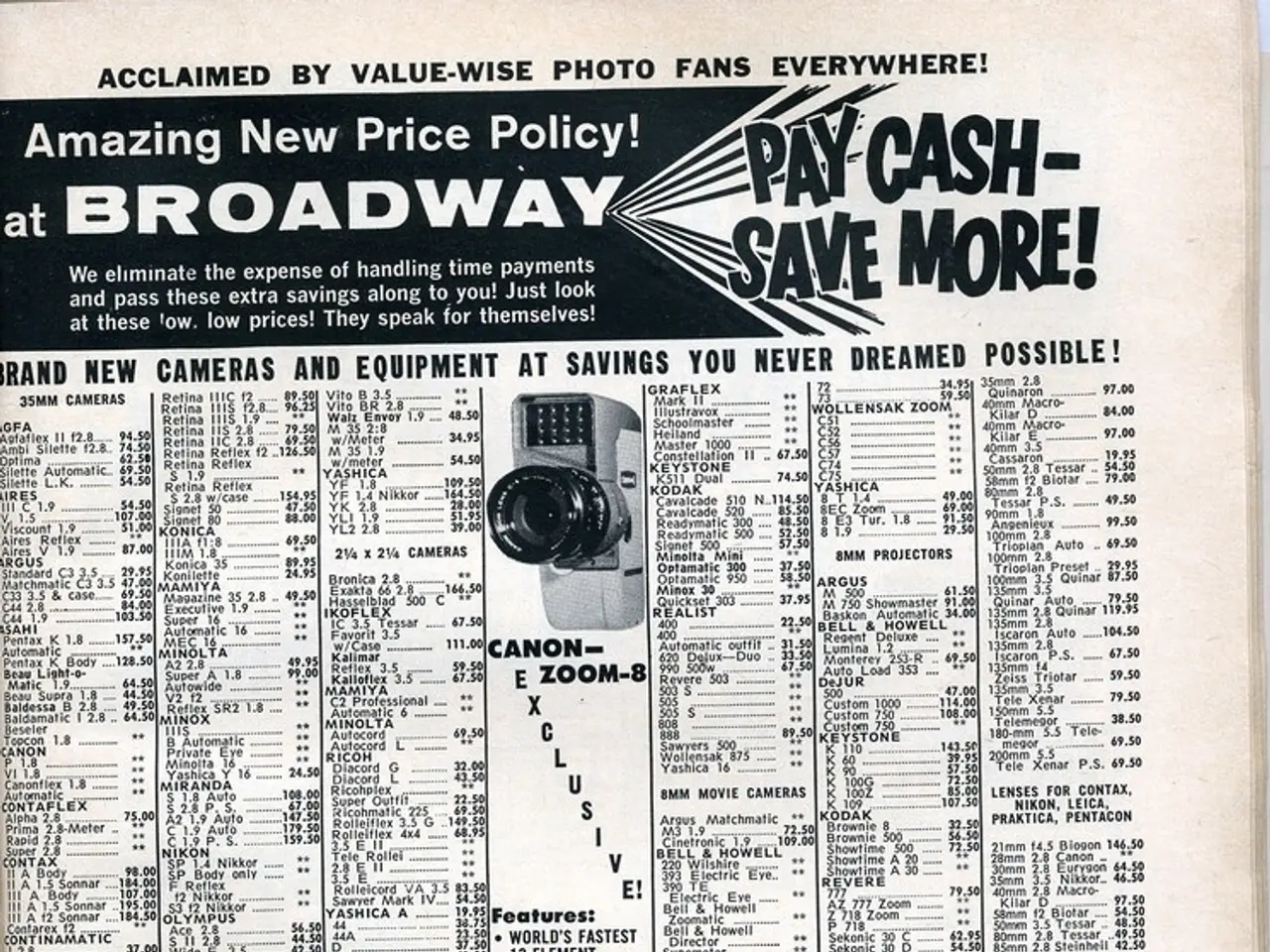"White House addresses furor sparked by Sydney Sweeney jeans advertisements: A wave of cancel culture criticism has hit the White House"
A recent advertisement for American Eagle featuring actress Sydney Sweeney has sparked a heated debate, with opinions divided over its content and implications in the current cultural and political climate.
The Ad and Its Interpretations
The ad, which has garnered over 80 million views as of 31 July, features Sweeney promoting the brand's jeans. However, some viewers and commentators have criticized the advertisement for being overly sexualized or for the way it portrays young women. This has led to conversations about body image, sexuality, and advertising ethics.
Others, on the other hand, have defended the ad, viewing it as empowering or simply as fashionable marketing.
Political and Social Implications
Cultural Debates on Sexuality and Media
The backlash fits into a broader debate over how women’s bodies are represented in media and advertising. In the current climate, there is heightened sensitivity about objectification versus empowerment, with differing opinions often split along ideological lines.
Generational Perspectives
Younger audiences may view such ads as expressions of freedom and body positivity, while more conservative groups often see them as contributing to moral decline or improper influence on youth.
Consumer and Brand Responsibility
The incident raises questions about corporate responsibility—whether brands should adapt their advertising to contemporary social values or prioritize creative freedom and market appeal.
Political Polarization
In today’s polarized environment, such cultural issues often become proxies for larger political battles involving gender politics, the role of media, and societal norms. Conservative commentators might denounce the ad as inappropriate, while progressive voices might defend it as a form of self-expression.
The Broader Context
This is not the first time Sweeney has been surrounded by controversy. Earlier this year, she faced criticism for selling a Dr. Squatch bar of soap containing her actual bathwater, which some labeled as antifeminist.
The controversy surrounding the American Eagle ad has led to accusations of promoting "white supremacy" and eugenics, with some calling the campaign a "Nazi" dogwhistle. These allegations have been vehemently denied by many, and the controversy has been used by the American Right to blast the liberal Left and push back against perceived "wokeness."
Conservative TV personality Megyn Kelly has also weighed in, calling out the "lunatics on the Left" for their take-down of the ad.
As of the publication of this article, neither Sweeney nor American Eagle has publicly responded to the controversy surrounding the advertisement. The White House communications director, Steven Cheung, has commented on the matter.
The controversy continues to grow in intensity, with reactions going viral online. A TikTok post by @thealtperspective, viewed nearly 2 million times, claims the advertisement is full of racist and fascist dog whistles.
In summary, the controversy is less about the ad itself and more about how it intersects with ongoing political and cultural tensions regarding media representation, gender norms, and societal values in the United States.
- In the realm of social media, the debate about the American Eagle ad featuring Sydney Sweeney has intensified, with viewpoints divided over the advertisement's portrayal of young women and its alignment with contemporary political and cultural norms.
- As part of broader discussions on sexuality and media representation, the controversy surrounding Sweeney's ad raises complex questions about the role of corporations in adapting advertising practices to reflect social values versus prioritizing creative freedom and market appeal.
- The ongoing controversy surrounding the American Eagle ad, involving allegations of promoting white supremacy and serving as a "Nazi" dog whistle, has sparked heated discussions in the realms of politics, pop-culture, and policy-and-legislation,mirroring the polarized environment in which gender politics, media ethics, and societal norms are contested.





